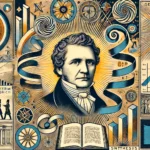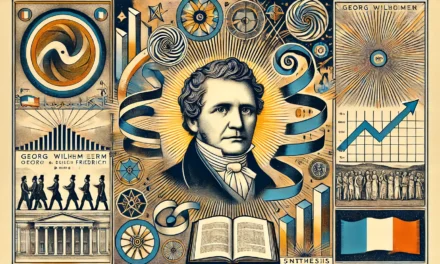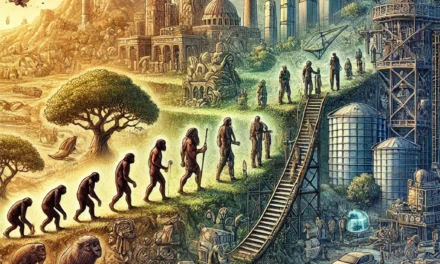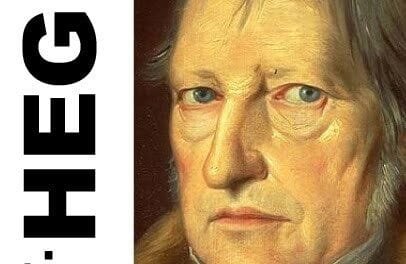
The Mystery of Philosophy

The Mystery of Philosophy
Introduction
We refer to the sciences that accept an initial empirical point as empirical sciences. In general, their essential aims and outcomes are laws and general propositions, which are concepts; what they find relates to ideas rather than anything else. Thus, while Newton’s physics was called natural philosophy, Hugo Grotius gathered the historical actions between nations into a collection of general principles, creating a theory known as the Philosophy of International Law.
The term “philosophy” in England still carries this general meaning, with Newton retaining his reputation as one of the greatest philosophers. However, the term is reduced to tools like pressure gauges, which don’t fall under categories such as magnetic or electric devices, and are called philosophical instruments. Without a doubt, philosophy should be attributed to thought alone, not to the composition of wood or iron. In this sense, the field of political economy, particularly known as rational or theoretical economics in Germany, also began to take the name of philosophy, especially in recent times (Science of Logic, p. 7).
It is clear that Hegel opposes the designation of empirical sciences as a philosophy during their developmental process. Even though he names his book dedicated to legal studies The Principles of the Philosophy of Law, Hegel’s complaint has an objective basis rooted in the changing atmosphere of the intellectual life of his time.
The Historical Context of Philosophy and Science
The Evolution of Scientific Autonomy
The separation or liberation of sciences from speculative thought about nature, allowing them to stand independently with their subjects and methods, characterizes the era. From the 17th century onwards, all sciences—from physics to chemistry, sociology, psychology, and even modern aesthetics, often referred to as the science of art or beauty—broke away from philosophy. Beyond the separation from philosophy, science today has fragmented even its foundational areas, leading to specialized subfields. Hegel’s objection to calling empirical sciences philosophy stems from the fact that, at the time, these sciences had not yet acquired sufficient capacity to explain their subjects, and when they failed, they turned to philosophy, speculation, or even straightforward appeals to God.
Case Study: Newton’s Dual Legacy
Newton, the world’s greatest physicist, began his exploration of the universal law of gravitation by asking, “Why should the Earth, which attracts the apple, not also attract the Moon and the planets, holding them in place?” He delved into the depths of the universe in his scientific investigations. However, when he fell short in his explanations, he said, “This harmonious system of the Sun, planets, and comets must have been formed by the order of a supreme, all-knowing being. God is present everywhere at all times. By being so, He created time and space” (Newton, p. 52). From this, he derived the concepts of absolute space and absolute time. Thus, it becomes clear how the greatest physicist also maintained his fame as the greatest philosopher.
Philosophy and Science: Parallel Phenomena
Religion, philosophy, and science are nothing but stages in the development of true human thought, each addressing the nature of humanity and the world. Philosophy, from the first philosophers to modern thinkers, has been an effort to analyze and make nature and humanity comprehensible. However, the phenomenon of sciences rising independently from philosophy led to the parallel development of two distinct phenomena. I believe this process resulted from the material conditions of the time, with one phenomenon influencing the other through mutual interaction rather than a cause-and-effect relationship.
Phenomenon 1: Science Appropriates Philosophy’s Subjects
The first phenomenon is the handling, processing, and explanation of nature (including human nature), the universe, existence, and time by the sciences, or more accurately, the appropriation of these subjects by science, which is made possible by the technical and intellectual advancements of human historical development. The subjects that philosophy once claimed to explain have been taken up by science, leaving philosophy without a subject or, more accurately, without an object. Science has stripped philosophy of its exclusive domain of inquiry. To be more accurate, we must modify our statements because there are still those who operate under the banner of philosophy today, attempting to understand the world philosophically without truly grasping what philosophy is.
Phenomenon 2: Philosophy’s Shift to Methodology
In reality, scientific knowledge has taken the place of speculative philosophical thought in explaining the world, and this later led various philosophers to pursue the empty goal of seeking the certainty of knowledge provided by science within philosophy itself. For example, Husserl stated, “Philosophy must begin from the concrete experiences of life if it is to reach genuine knowledge” (Husserl, p. 78).
The second phenomenon is the shift in philosophy from investigating the origins of existence to epistemology, focusing primarily on the method of thinking and, fundamentally, logic. As a result, many philosophical researchers, such as Russell, have strived to give logic a mathematical structure in their quest for absolute certainty (Russell, p. 43). In conclusion, we can say that the process in which science “stole” the objects of philosophical inquiry one by one and left philosophy without an object corresponds to the same process in which philosophy turned toward method.
This process began with Descartes and Bacon and ended with Hegel and Marx. It culminated in the emergence of dialectical materialism at the highest level of scientific development.
The Philosophical State of Our Time
In our time, philosophical literature consists of comparative analyses of old philosophical texts and authors regarding philosophy and the history of philosophy. Those who consider themselves philosophers and their works as philosophical creations cannot go beyond endlessly presenting the thoughts of known schools and authors, with an air of pretentiousness as if they were novel and unique ideas never before contemplated. The originality of these people does not lie in their intellectual contributions but in their inability to surpass past philosophical texts, which now seem childish to many. Consequently, they attempt to mask the weak content of their ideas with an elaborate presentation.
The “New” Philosophical Movements
The philosophical mediocrity of our time manifests itself in presenting every previous school of thought, from Pythagoras to Hegel and Comte, with the adjective “new.” We see this in movements like Neo-Kantianism, Neo-Hegelianism, and Neo-Positivism.
In reality, today’s philosophy is the study of the history of philosophy, logic, and epistemology. For a long time, methodology, once closely associated with philosophy, has been moving away from it in parallel with scientific developments.
Philosophy and Science: A Historical View
The current state of philosophy undoubtedly stems from its nature as philosophy. The 17th century witnessed two phenomena simultaneously. Both philosophy and science gained momentum for development and deepening within a single figure—Descartes. Science operated within the conflicting traditions of Platonic and Pythagorean views that saw the universe as structured according to mathematical principles, and the mechanistic view that sought to explain hidden mechanisms behind phenomena.
Meanwhile, philosophy, driven by Descartes, sought to establish itself on a “solid” foundation, affirming that existence was based on the act of thinking with the proposition “I think, therefore I am.” However, this process led to a chaotic situation in philosophy, characterized by fear of losing its object and disappearing, while science experienced full development, free from the speculative flights of philosophy.
The Response to the Crisis of Philosophy
The advancement of empirical sciences caused insecurity in philosophy. The response was an effort to make philosophy as scientifically certain as the empirical sciences, arguing that this could only be achieved if philosophy had its own object, just like the sciences (Husserl, p. 101). “Essence” was proposed as the object of philosophy, leading to the belief that philosophy had finally become a legitimate science. While philosophy had long dealt with issues concerning the world and humanity, by the 19th and 20th centuries, it found itself confined to methodology alone.
The Death of Philosophy: A Marxist Perspective
The notion that philosophy had reached its historical end and conclusion after Hegel has nothing to do with the collapse of Hegel’s speculative philosophy. It is due to the fact that reason, which sought truth, no longer found it in speculative constructions but in empirical, sensory reality. During the same period, we witnessed sciences breaking away from philosophy and turning to their objects with their own methodological tools. In short, reason was returning to its own nature, long since departed but now deepened and confident.
The Neo-Kantian Response
Movements described with the adjective “new” emerged as critiques of this situation. The first response came from the Neo-Kantians, who claimed that philosophy collapsed with Hegel’s system and that salvation lay in returning to Kant. The Neo-Kantians began by expelling anything dialectical or material from Kant. According to them, “We can only know phenomena; science must content itself with studying phenomena” (Neo-Kantians, p. 88).
Engels countered, saying, “The Neo-Kantian agnostic steps forward and declares that we can perceive the qualities of an object accurately, but we cannot grasp the object itself by any sensory or mental means. The thing-in-itself is beyond our comprehension. But the objects whose qualities we know are already known objects to us” (Engels, p. 66). Like other movements with the “new” label, Neo-Kantianism offers nothing genuinely new. In modern academia, Neo-Kantianism often manifests as an overt hostility toward Hegel.
The Marxist Perspective on Dialectics
The mystery of philosophy remains a highly debated topic within Marxist literature. The relationship between Marxism and philosophy has revealed countless tendencies within Marxism. Many of these tendencies have failed to recognize the historicity of philosophy—that it is a moment in the history of human thought as a form of knowledge. From Althusser to Korsch, Lukacs to Plekhanov, and including Lenin, who was influenced by Plekhanov, this includes most Russian Marxists.
In short, much of contemporary Marxism fails in this regard. Every age tends to elevate the method it abstracts from nature, according to the depth of its knowledge of nature, to an absolute status. Therefore, dialectics is often taken as an absolute structure derived from natural sciences, not just relative to their development, but imposed as a method dominating the future evolution of science.
The Superiority of Dialectics
Engels states that the superiority of dialectics over metaphysics is like the superiority of the train over the ox-cart. From this, everyone understands the superiority of dialectics over metaphysics, but what must truly be understood is that dialectics is also relative to future scientific developments. I am not suggesting that dialectics has been surpassed, nor am I proposing such an idea.
The superiority of the train over the ox-cart is obvious, but in the age of space travel, computers, and nuclear technology, the superiority of the current age over the train era is equally evident. I oppose the absolutization of dialectics as a method that would dominate all future developments simply by emphasizing its historical nature.
Instead, we should uncover the contributions of advancing sciences to dialectics. Dialectics is the name for the general laws of movement. The development of sciences in nature, society, history, and human nature has revealed new forms of movement. The new dialectic should be shaped by these laws so that it can still function as a useful tool for new studies.
The End of Philosophy and the Rise of Science
Contrary to popular belief, it is clear that dialectical materialism is not the philosophy of Marxism. Philosophical knowledge, from a historical perspective, lags behind the sciences. Philosophy arose from the practical impossibility of humans obtaining knowledge about nature. The sciences, however, emerged from the empirical knowledge that humans gained about nature during the process of transforming it for their benefit.
Hegel’s critique, which I previously presented, about philosophy being purely speculative and intellectual, and that only this type of knowledge should be called philosophy, is entirely valid. Therefore, the notion that Marx’s science (as proposed by Althusser) — specifically Capital — should now be used to construct a philosophy is evidence of a misunderstanding of both Marxism and philosophy. In this context, Gramsci’s definition of Marxism as the “Philosophy of Praxis” is also revealed to be incorrect.
All attempts to associate Marxism with philosophy are mistaken. Marxism begins where philosophy, historically, has been transcended. It rises on the foundation of contemporary sciences and social movements. The secret of philosophy lies in its historicity as a form of knowledge. Religion was the product of humanity’s ignorance of nature, while philosophy emerged from humanity’s incomplete understanding of nature — the product of metaphysics.
It is not the result of true intellectual depth but weakness and superficiality. Sciences are born directly from humanity’s practical needs, that is, from the necessity of reproducing and sustaining life, and are the products of the empirical knowledge gained through transforming nature.
As Engels said, sciences do not derive their content from philosophy. Sciences derive their real impetus for development from humanity’s practical needs. Philosophy has enriched its content as long as it has been nourished by these scientific data. When distanced from these data, it has resorted to pure speculation.
In this sense, Engels’ assertion that philosophy has been formally surpassed and its content transferred to the sciences should not be understood as a derivative of philosophy but rather as an indication that modern scientific developments have negated philosophy as philosophy. In conclusion, we can say that philosophy is but a moment in humanity’s act of thinking—nothing more, nothing less.
Footnotes:
- Descartes, René. Meditations on First Philosophy. Cambridge University Press, 1996.
- Engels, Friedrich. Dialectics of Nature. Progress Publishers, 1940.
- Hegel, G.W.F. Phenomenology of Spirit. Oxford University Press, 1977.
- Husserl, Edmund. Logical Investigations. Routledge, 1970.
- Althusser, Louis. For Marx. Verso, 2005.
- Gramsci, Antonio. Selections from the Prison Notebooks. International Publishers, 1971.
- Lenin, Vladimir I. Materialism and Empirio-Criticism. Progress Publishers, 1972.
- Kuhn, Thomas S. The Structure of Scientific Revolutions. University of Chicago Press, 1962.
- Husserl, Edmund. Logical Investigations. (Trans. J.N. Findlay). Routledge, 2001.
- Engels, Friedrich. Dialectics of Nature. Progress Publishers, 1976.
- Althusser, Louis. For Marx. Verso, 2005.
- Gramsci, Antonio. Selections from the Prison Notebooks. International Publishers, 1971.
- Plekhanov, Georgi. Fundamentals of Marxism. Progress Publishers, 1976.
Review
90%
Philosophy's Legacy: Understanding Its Role in Modern Science In the essay, Ismet Şahin critically examines the relationship between philosophy and the sciences, particularly emphasizing the historical and epistemological implications of their separation. He argues that empirical sciences have distanced themselves from philosophy since the 17th century, leading to a fragmentation of knowledge and the rise of specialized subfields. Hegel's perspective is highlighted, noting his opposition to labeling empirical sciences as philosophy, and emphasizing the objective foundation of this objection in the evolving intellectual landscape. The essay discusses how figures like Newton and Husserl reflect this dynamic, where philosophical thought has often resorted to speculation when scientific explanations fell short. Ultimately, Şahin contends that philosophy should not be viewed as a derivative of science but rather as a distinct moment in humanity's quest for understanding, advocating for a re-evaluation of philosophy's role in light of contemporary scientific developments.





















